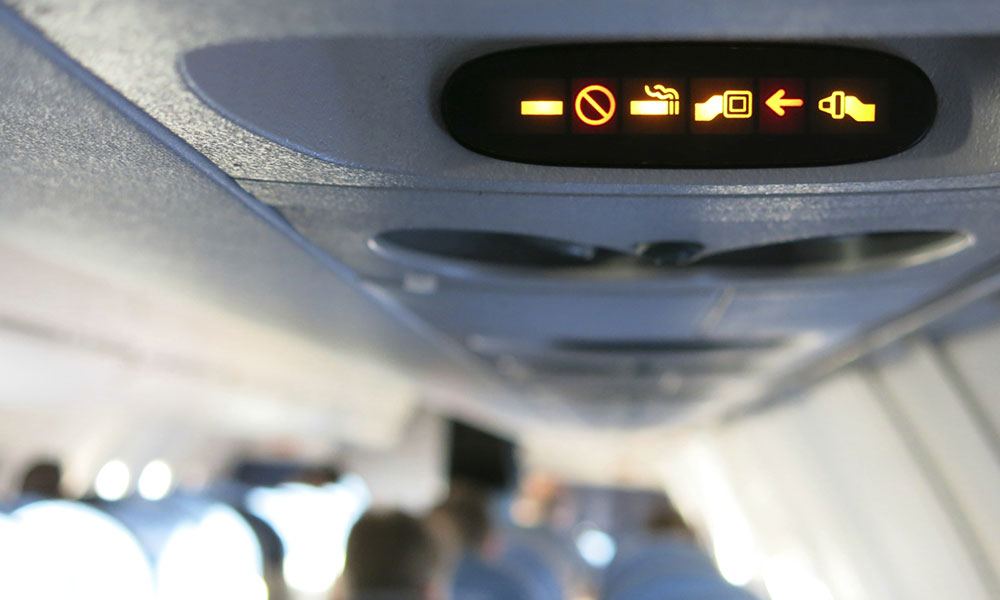
No Smoking on Planes: Lung Association Reflects on Major Legislative Win
A quarter-century ago, the American Lung Association successfully made the argument to Congress that smoking shouldn't be allowed on planes. This week, the association celebrates the anniversary of that achievement—and looks forward to the steps it hopes to take next.
Before we got rid of smoking in restaurants, we got rid of smoking on airplanes. That first step helped turn secondhand smoke from a (cough, hack) fact of life into a (deep breath) rare occurrence.
And the American Lung Association (ALA) is proud of its role in making that happen 25 years ago this week. On February 25, 1990, a law barring smoking on domestic flights of six hours or less—covering nearly all flights within the United States—took effect. By 2000, the law was expanded to include international flights to and from the United States.
ALA worked closely with two iconic Democratic legislators—the late Sen. Frank Lautenberg (D-NJ) and then-Rep. Dick Durbin (D-IL)—to make it happen. The results speak for themselves.
“We are very proud of the role the American Lung Association played in making smokefree skies a reality 25 years ago, and today we’re still aggressively fighting to protect Americans from the harmful effects of secondhand smoke,” ALA National President and CEO Harold Wimmer said in a news release.
In comments to the Chicago Tribune, Wimmer added that “it is incomprehensible to millions of children and adults that people actually smoked on airplanes.”
The change in the law, which itself came a quarter-century after U.S. Surgeon General Luther Terry first warned of the health hazards of smoking, started a broader trend.
Through its Smokefree Air Challenge, ALA has advocated heavily for laws prohibiting smoking in public places and workplaces around the country—including in 28 states, the District of Columbia, and numerous cities. Private businesses, too, have increasingly limited or banned smoking in their facilities.
ALA still hopes to get the other 22 states on board, and Durbin, now a senator, wants Congress to enact a ban on e-cigarette use on planes. (The Tribune notes that most airlines ban the devices, which produce vapor rather than smoke, voluntarily.)
“More needs to be done as one in four nonsmokers continue to be exposed to secondhand smoke, including two in five young children,” Wimmer added. “No one should ever breathe secondhand smoke, and workers should not have to be exposed to secondhand smoke simply to earn a paycheck.”
(iStock/Thinkstock)






Comments